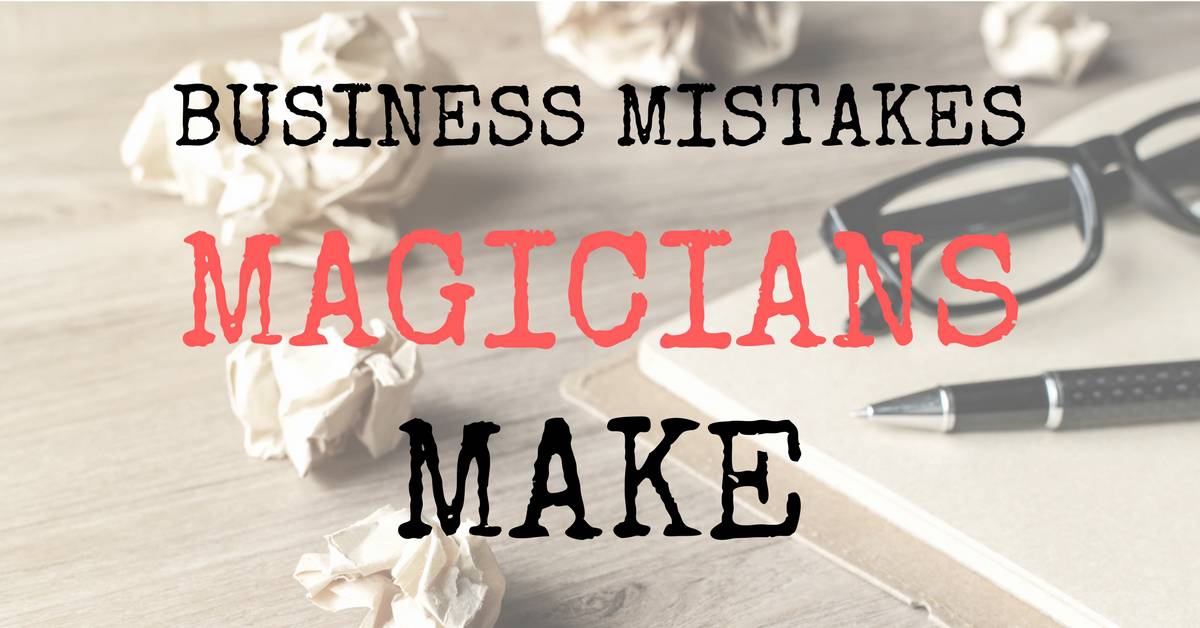
As a young kid, I was fortunate to find a few mentors to give me great tips and help guide me along my magic journey. They didn’t just help in the realm of sleight of hand – they helped me navigate my way through Show Business. That includes everything from performance material, marketing and business practices, and professional relationships with event planners and other Show Business Pros in Hollywood.
I know it can be tough to find trustworthy tips for magicians or an honest and helpful mentor. So I asked some of the best magicians in the world what tips they could provide to an up and coming magician.
They shared their top three biggest mistakes that magicians make in the “business” part of showbusiness… and how to fix them. Some of the responses are surprising and some tips are funny – all of them are highly useful, and I hope you think so too!
Magician Tips: 3 Biggest Business Mistakes Magicians Make
Lisa Menna

Lisa Menna is a world-class entertainer and the only woman in history to perform in all three rooms of the prestigious Hollywood Magic Castle. She includes magic in her philanthropic work throughout the world and has performed in over 40 countries.
1. Non-magical forms of distraction – all the way down to snow-cone machines – are your main competition. Other magicians are not.
2. The average sale is made on the 7th contact, the average person gives up on the 3rd try.
3. Less is more.
Dan Sperry

With millions of hits on YouTube and 100’s of thousands of loyal online followers Dan Sperry the Anti-Conjuror has become a social media phenomenon and one of the most sought after live performers working today.
1. They perform for themselves and not their audience – don’t be selfish.
2. They force demonstrations without truly being asked – don’t be selfish.
3. They see something on TV or on a video or whatever and do it exactly the same way without putting anything of themselves into it.
Just be yourself.
John Archer

John Archer is a past winner of the ‘Magic Circle Stage Magician of the Year’ and certainly one of the best comedy magicians in the UK today. He was the first magician to fool Penn & Teller and basically does nothing but succeed wildly on every stage regardless of circumstance
1. They worry too much about publicity and not enough about their act, Concentrate on every aspect of the performance and listen to the audience. Be in the moment when performing so you are aware of the dead spots and then try and eliminate them. There is no better publicity than people talking about a great act.
2. They charge too much, too soon. When you first start money should be secondary to getting performance time in as many situations as possible. Just because you hear what so and so is charging doesn’t mean that you should yet. Eventually you will be good enough and confident enough to charge what you think is the going rate.
3. They listen to too many people. Everyone is a critic in this business, especially other magicians, if you are not careful you will get swamped with advice. Choose some friends who you trust and respect and listen to them. True friends will encourage and build you up… If you find that friends are bringing you down then maybe rethink that friendship.
David Williamson
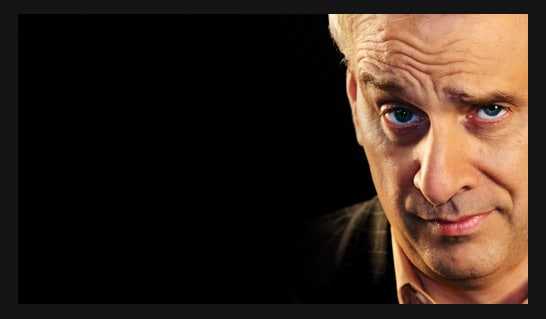
David Williamson is a living legend and master of magic. He has created illusions for and performed in several commercials and has developed TV shows for Walt Disney Productions and ABC, as well as consulting for illusionists David Copperfield’s and David Blaine’s TV specials. He is also one of the funniest performers you will ever see take the stage!
Don’t let other people define you or your path to success. There are as many ways to have a career in Magic as there are people doing it! Don’t wait to be discovered, go out and blaze your own path with whatever tools you have and play to your strengths. Be bold, have fun and be creative! There are no rules, I know because just when I start obeying one, someone else comes along and breaks it! Usually to great effect. If this just sounds like a bunch of platitudes, it’s not. I wish someone had told me this when I was starting out.
Also, keep your fingernails trimmed.
Ning Cai
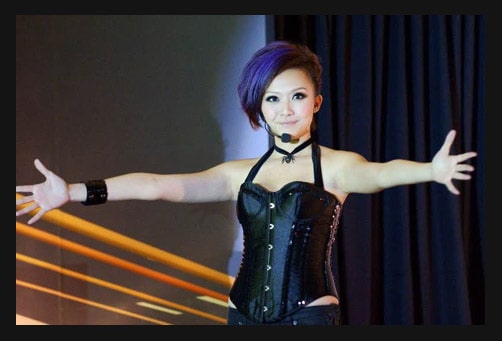
Ning Cai is a Singaporean magician and entrepreneur. She has been recognized by Channel News Asia as “South East Asia’s First Professional Female Magician”. Ning has broken a number of records and won numerous awards for her work in magic. Click here for a full list
Trying to look exactly like your magic hero. Doing the same acts or routines. Even copying the same show music.
Understand that true professionals are creative artists. Make art. Create something new. Don’t be a copycat.
R Paul Wilson
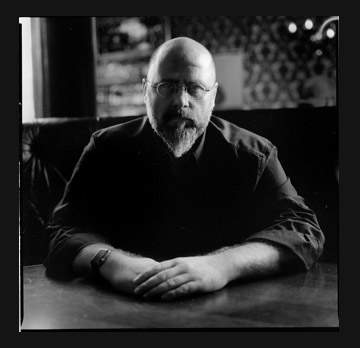
R Paul is a highly regarded writer, creator and lecturer with countless original inventions used by professional magicians around the world. He is also a performer with a huge repertoire of original effects and a reputation for classical conjuring using cutting edge methods.
They undervalue themselves. Worse still, they undervalue their art. Magic is the most powerful, personal storytelling medium on Earth. That’s why cinema is always compared to magic, not the other way round. If you disagree, choose another medium to tell your stories.
Andi Gladwin
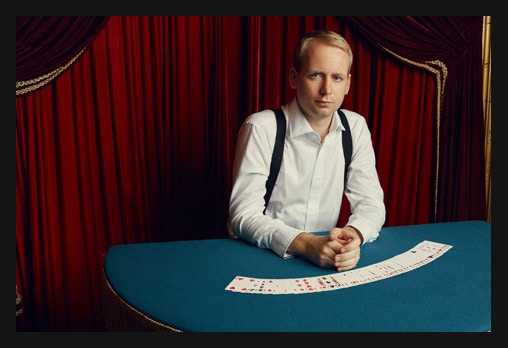
Andi Gladwin is a a professional close-up magician, magic creator, author, co-founder of Vanishing Inc. Magic and lecturer. He has published top-selling magic books and over the past year has lectured at the biggest magic conventions in the world including The Session, Blackpool, FISM, Magi-Fest, MAGIC Live and The Genii Convention.
Many of the mistakes that magicians make in business stem from the same overarching thing: not creating the best product possible. My goal is always to be the best magician possible and to offer the best experience I can. I’m constantly learning and improving so that I’m prepared for every situation. And most importantly, I’ll only take a gig if I know I can make an impact at that event. To take a gig just because I want the money goes against being the best product possible — you really must ensure that you only perform in situations where you can be the very best; to do anything else is simply shortsighted. Do the best gigs and be the best you can; with that formula, it’s impossible not to be a success.
Scott Hammell
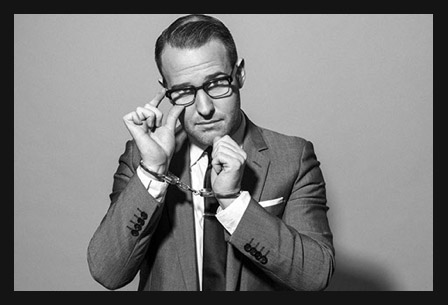
Scott Hammell is a four-time Guinness World Record holder. Whether it’s magic, escape artistry, stunts, or speaking, his goal is to entertain and inspire
1. They fight TOO hard to get things for themselves and not enough time making the client happy. The best piece of advice I was ever given with regards to business is, “The only reason you should be in business is to satisfy your customer.” If your client isn’t happy, they aren’t going to tell their friends and they certainly aren’t going to hire you back. It’s WAY easier to keep existing clients than it is to get new ones.
2. They see other magicians as competition.
If people have a bad experience with a magician, they probably aren’t going to hire one again. When you can’t do a show, pass it on to someone you can trust to do an amazing job. It will make both of you look great. If you don’t give them a name of someone you recommend, they’ll try and find one by themselves. We all know there are plenty of performers out there who advertise themselves as “The best magician in the universe” and that’s a far cry from the truth. The client might not know any better and hire someone who sucks. If you pass other magicians work, they’ll pass it on to you! I’ve gotten more business from other performers than I have from bureaus and agencies combined.
3. They focus too much on tricks and techniques and not enough on performance and being human. If you can perform well, audiences are NEVER going to know the difficulty level of what you’re doing. They just want to be entertained. If all of your time is invested in techniques instead of being well rounded, how are you ever going to connect with your audience?
Diana Zimmerman
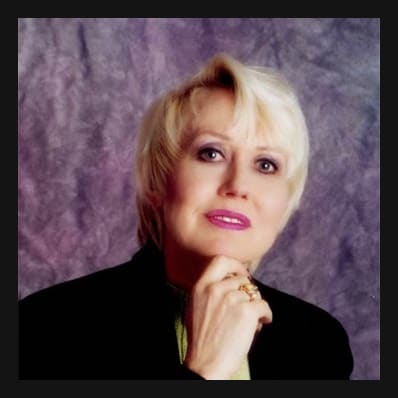
Diana Zimmerman is an American performer, entrepreneur, writer, and businesswoman. She has received both a Lifetime Achievement and a Special Fellowships from the Academy of Magical Arts.
1. They create an act, and then look for a place to perform without understanding the market.
2. They create an act, and then look for a place to perform without understanding the market.
3. They create an act, and then look for a place to perform without understanding the market.
(It’s a pattern.)
Bill Abbott
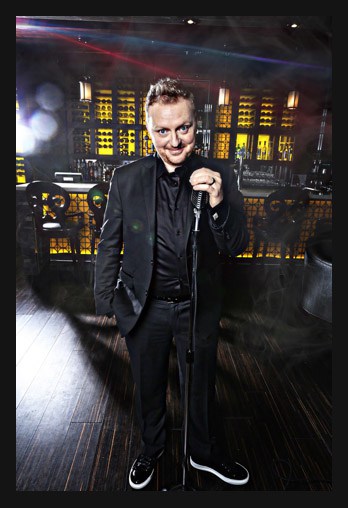
Bill Abbott is an internationally acclaimed entertainer with 20+ years experience and over 5000 performances in over 11 countries.
1. They listen to magicians for business advice.
2. Many either focus too much on the product (their show) and the business end suffers. Or they focus solely on the business end and have a shitty product, their show.
3. ?
John Guastaferro
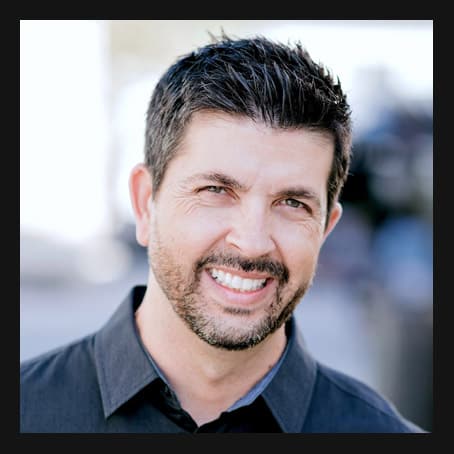
From Hollywood and Los Angeles—to London and Paris—John has thrilled thousands of people through his magic. John has also earned worldwide acclaim for his creative insight and published books on the art of magic
The three mistakes I see most often are: Amateurish marketing; not understanding your brand; and performing before ready. The solutions are easier said than done.
1. Avoid amateurish marketing. In an age where anyone can produce their own website, this can often work against you. Convenience does not equal good design. So, invest the help of a designer and copywriter to help you bring your brand to life.
2. Understand your personal brand. In my book One Degree, I guide the reader through defining their “brand promise” by starting with nothing more than a napkin and pen. Your brand encompasses what you do, why you do it, and where you are going (your desired impact). Once you understand this, it’s much easier to open doors with confidence and authenticity.
3. Prepare, practice, and prepare some more. Performing professionally is much different than performing for friends. It takes more practice and preparation than we often think. Just like a airline pilot, who must accumulate over 1,500 hours of flying time before becoming a captain, we as magicians must rack up numerous performing hours before moving into the professional arena. Start with family and friends, then friends of friends. Volunteer and donate your time for small gigs. Expose yourself to difference performing environments, from loud parties to elegant environments. Rack up your hours, then even more, before calling yourself “professional.”
Do you have any magician tips that were not mentioned here? Did you make any of these mistakes yourself at any point? I’d love to hear what you think in the comment section below!
Warmly,
Aaron